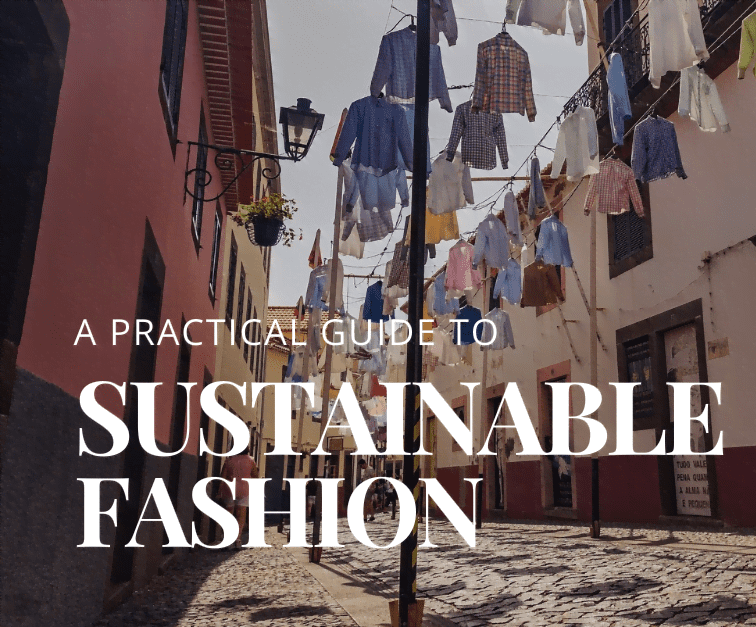Black Friday sales almost always trigger a flurry of eager shoppers who are eager to bag the most lucrative deals on shopping platforms and sites. Registered as one of the must busy shopping days on the calendar, Black Fridays have attracted a lot of attention. Not all of that hype is positive though. Now that this day is almost over in several countries, it is imperative to reflect on its consequences for environment and sustainability.
Several brands benefit immensely from the sales- advertising products that are up for dirt cheap prices attracts a huge number of people for obvious reasons. But the massive haul culture encouraged by this day and the overproduction that powers its engine also make these salesy, shopper friendly days a nuisance for the planet.

It’s hard to believe that just a day of throwaway discounts and deals can escalate emissions and environmental costs to an unprecedented scale. But it is true- Black Friday is not only a day when retailers attempt to recover their lost profits, but they end up enhancing the climate menace and also the risk of several accidents such as a shopper stampede as they rush into stores to get their hands on all that they want, and everything that they don’t.
While several brands are choosing to opt out of such sales due to changing commitments and consumers drifting towards adopting sustainable shopping, they still capture the fancy of millions who look forward to bag the best of what is offered. Hence, exploring the impact they have on the climate and the consumerist psyche is important since Black Fridays can cast a long shadow.
Read below to know all about these days and what can they mean for the environment.
What are Black Fridays and Cyber Mondays?
Black Friday falls on November 25 every year. It occurs after the US Thanksgiving day. Although Black Friday is not universally applicable as a day of significance, it has become a noted global event, especially for a past few years.
Along with Cyber Mondays, Black Friday sales offer customers a chance to shop for gifts at a much lesser price before the holiday season rings in. These days are essentially a day of festive shopping, but the concept has travelled to things past Christmas gifts. Several online retailers- big or small attempt to make the most of this occasion to bulk buys put up with highly attractive discounts.
Customers look towards these days ardently, even going to the extent of marking them up in their calendars. In a way, Black Fridays and Cyber Mondays are observed quite religiously by consumers and brands worldwide. The trend has travelled to apps that offer attractive discounts on online subscriptions, apart from tangible merchandise.
The Origins of Black Friday and Cyber Monday Sales
Black Friday might have been a recent phenomenon, but its origins go back to the Panic of 1869- when a significant fortune was made and then lost in the same calamitous day in the Black Friday stock market crash. However, it might be confusing to unravel how Black Friday came to be known- the journey from a mournful day of loss to a day of indiscriminate profit is quite interesting.
Several sources cite that the term Black Friday was used by the Philadelphia Police to term the throngs of unruly shoppers that crowded marts and shopping centers that ultimately resulted in an extremely chaotic situation that spiraled into more uncontrollable instances of violence and stampedes.

It was in the 1980s that Black Fridays acquired their cult meaning as the day when stores recovered their lost profits, or that they were ‘not in the red’ anymore. The profits were marked in black ink, hence the name.
Coming to the 2000s, more specifically after 2013- Black Fridays were not the only days of massive shopping and unbridled consumerist indulgence. They were coupled with Cyber Mondays and Small Business Saturdays that directed attention to smaller retailers, after the Thanksgiving period. All these celebratory days were created by retailers to encourage people to shop more and recover their profits. These days are also highlighted to clear the stocks before the holiday season and are considered a win-win for both retailers and shoppers. Retailers get profits, and shoppers their own little heaven of inexpensive shopping.
But what is the cost it inflicts on the environment? Is Black Friday really an attractive option when judged according to how it impacts the planet? The answers to this are unfortunately negative. For a closer look, let’s move on to assess its environmental impact and what can it mean for sustainability.
Analyzing Black Friday and Cyber Monday 2023: Impacts on Environment and Sustainability
With the current focus on sustainable shopping and the emphasis on ‘less is more’, one would expect that the enthusiasm for Black Friday sales would be either phased out, or would have been lukewarm. Although the increasing traction of shopping mindfully is on a rise, it is still overshadowed by the shopaholic frenzy unleashed by Black Friday. The frenzy is compounded by Cyber Monday that occurs after the weekend.

Experts such as Phil Purnell from the University of Leeds have expressed their concern about Black Friday being one of the most worrying trends of the current shopping culture. Purnell’s worry is understandable- the impact of Black Friday manifests in the excessive amount of production of goods, their transportation and the packaging used to ship them safely to consumers.
According to statistics published by Adobe Digital Insights, in 2021, the Black Friday sales in the United States had seen consumers dish out as much as $9 billion online on several goods ranging from electronics, furniture, appliances and other categories. Prolonged by the following Cyber Monday, the week generated a massive commercial profits for online giants.
While production claims the largest stake of CO2 emissions, other factors that contribute to rising emissions is what devices such as smartphones, laptops and tablets generate into the atmosphere. Purnell says that at average, devices release more than 100 kilograms of CO2 into the atmosphere, while consumers spend copious amounts of time just looking for the best deals. Even before a single garment, say a T-Shirt goes into your cart, the cost of the emissions generated is much higher than the amount spent to buy and make the T-Shirt.
Moving on, the impacts are further increased during shipping and transportation. About 429,000 metric tons of GHGs are released by transportation when delivery vehicles are congesting the roads to ship the goods to eager consumers, according to a comparison report by Money.co.uk in 2021.
The extra waste generated post shopping and delivery is also highly worrying. It’s simple to decode- since we buy more and indiscriminately so, we also dispose more waste. The packaging includes bubble wraps, plastic air bags, cardboard boxes, thermocol and Styrofoam which contributes to the heavy ecological rucksack. Up to 80 percent of Black Friday sale items end up as waste, according to Dr. Anne Velenturf, a Research Impact Fellow in Circular Economy at the University of Leeds.
Do We Use All That We Buy?: Why are Black Fridays and Cyber Mondays Not Sustainable?
The main concerns related to Black Fridays also boil down to the fact if we actually use what we order. The cycle does not merely end at ordering and deliveries. Many consumers who are not satisfied with the products delivered also insist on returning them, which doubles the transportation costs on environment. Double trips, hence mean double the emissions. In fact, quadruple it since the new product will also require trips and packaging.
And what becomes of the excess goods produced during Black Fridays? It is safe to assume that we use all that we order- but here is the catch. Industries such as fast fashion do not produce goods that are made to last. So goes for the other verticals who try to cash in on Black Friday sales. A shorter shelf life means more consumption- and now it actually seems like Black Fridays were designed to make us spiral into true madness.
We do not use all that we buy. It is a bitter pill to swallow, but it is also the occasion where we need to rise as consumers and own responsibility for exerting such a turgid pressure on the planet’s limits to endure the brunt of rising GHG emissions. The best maxim to adhere to is waste not, want not. But surely there are other alternatives that could give a new spin to Black Friday sales and mollify their impacts.
Alternatives To Black Friday and Cyber Mondays to Follow
The good news is that if retail came up with Black Fridays and Cyber Mondays, then sustainable shoppers and advocates have devised days and trends of their own to follow. Tune into some of these such as-
Green Fridays

Emphasizing sustainable and responsible consumption, Green Fridays are a rejoinder to their darker-hued counterparts that focus on adhering to reuse-reduce-recycle principle and favoring small manufacturers and sustainable goods. Green Fridays are not complements to Black Friday sales, they are its more responsible alternative where consumers attempt to shop from greener brands with a minimal environmental impact. The Be Zen Chrome extension can be an apt companion for this occasion as it redirects you to what is more sustainable.
Celebrating Green Fridays does not stymie shopping, but gives it a new, longer lease that is actually beneficial for both the planet and your pockets. This day encourages consumers to go for quality and real change instead of mass-produced, cheap articles that come at a huge cost to the climate. Who says sustainable cannot be affordable too? Green Fridays actually encourage consumers to pick less, and shop only what they need instead of buying for buying’s sake- because we know that the latter is a vicious trap.
Give Back Tuesdays

Shopping also has an ethical aspect. Since the mass production associated with Black Friday and Cyber Monday sales ignore the pressure exerted on workhouses and the ethical implications for the workers there coupled with the wastage of goods and material, Give Back Tuesdays aim to repair the fractured bond of solidarity and sustainability.
Give Back Tuesdays are a way to share and care. You make a pledge to not hog all you can get, but to help the more unfortunate residents of the world with what you can give. Extra food, resources, money, clothes, and shoes- Give Back Tuesdays are about putting a stop to mindless shopping and giving instead. You can actually make someone’s day with what you don’t need- because they might. However, don’t go to the extent of dumping all your stilettos in an orphanage, be mindful of what can be used by them.
Buy Nothing Days

As the name suggests, it’s actually healthy to mark the year with a Buy Nothing Day where you swear off surfing all the tempting deals (yes, digital subscriptions too. Most of them eat away at your moolah anyway.) and engage yourself into a genuinely sustainable, zero-waste lifestyle. On days that you are tempted, you can try asking yourself some questions before you buy something-
- Will I use this 30 days from now?
- Why am I buying this? Can it wait till next year?
- If it is important- can I thrift it or get it from a more sustainable brand?
- Will I be able to use this once I have tired of this product? Can I help someone else by passing it down?
- Is this product genuinely green? Where does it come from? Can I recycle it?
- What happens to this good once it ends?
Giving these aspects a thought will help you engage with how you shop and reflect on the futility of accumulating goods when you don’t need them- which is exactly what Black Friday deals NOT direct you to do.
Conclusion: What Does Be Zen Think of Black Fridays?
We at Be Zen believe in sustainable shopping, and unfortunately, Black Friday 2022 does not pass the vibe check for us. Given its environmental impact, we advise you against dipping your toes into the frenzy of inconsiderate and ignorant consumerism. Here is what you can ask instead- is the discount you get on a good on a Black Friday more worthy than the planetary impact you exert or you can? Doing a little cost-benefit analysis can go a long way, because shopping does not end at your cart, it is composed of several other aspects that can alter the planet and the climate for better or for worse.
What we advise you to do instead is attempt to restrict your urge to shop more. And in case you wish to, do it from a brand or manufacturer that sources its ingredients and raw material sustainably, gives a transparent statement about their policies and is genuinely good and trustworthy about its credentials. You can also try reading up on how can you be a more proactive and sustainable consumer and shop local instead.
Now that Cyber Monday is yet to come, we expect you to engage and think about the repercussions it entails. You can either choose to prolong the drive of mindless shopping and environmental excesses, or you can choose to phase it down. After all Black Fridays are not just black in name, but in deed too.
Choosing to go green instead of black might do wonders for you and the planet. Some brands are also doing this trend the right way- but the main takeaway is to make this year and the next as the time when overconsumption needs to be triumphed by mindfulness and sustainability. It is time to hop on the wagon to make Black Friday green- and the upcoming Cyber Monday is your chance to do things right!















